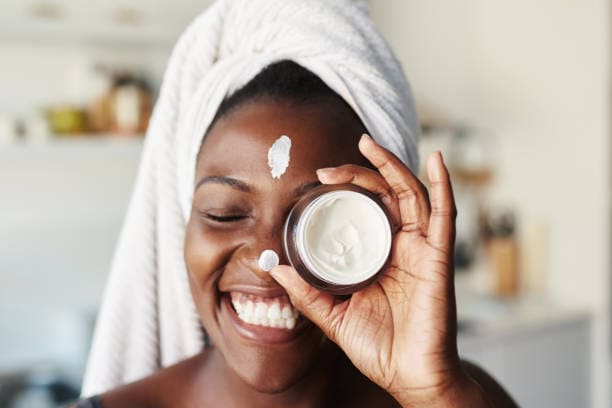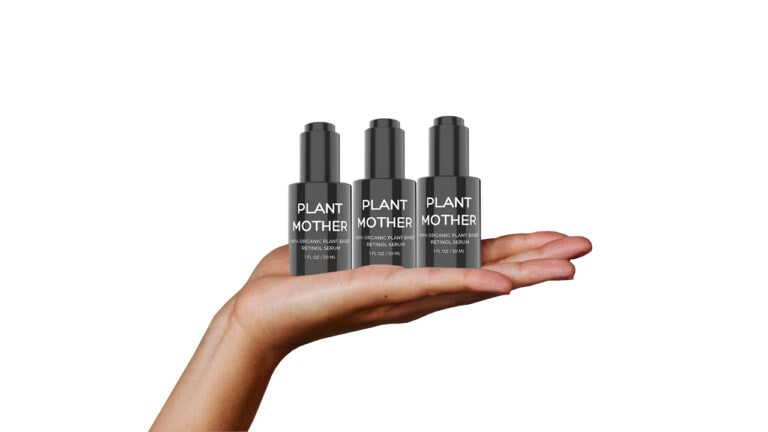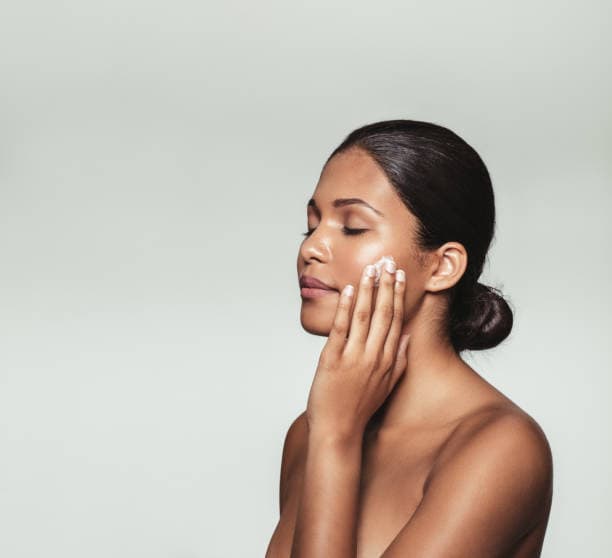10 Face Cream Facts You Need To Know

Face Cream: What, Why, and Which Ones?
No matter what skin type you have, incorporating a face cream into your skincare routine is essential. As with any skincare product, there are a vast number of products on the market. Therefore, it can be quite difficult to choose the ideal one for you. However, by better understanding factors such as our skin type, environments, and ingredient makeup, the choice becomes less overwhelming.
Why are face creams necessary?
By the time you’re in your 20s, you should certainly be incorporating a face cream into your skincare routine. Most people have heard about the benefits of premature anti-aging product use. But moisturizer is truly something that you can never have too much of. By using a face cream, you encourage your facial barrier to lock in moisture. Moreover, you’ll preserve elasticity and softness of the skin. Even the oiliest of skin can benefit from face creams. In fact, if you use the right product, it should help balance out the texture of your skin. Also, it’ll decrease excess oil production.
Additionally, for people who struggle with dermatological issues, face creams can be part of the cure. For people with sensitive or damaged skin, if you consistently use a face serum and moisturizer, it can help restore the strength of your facial dermis. Further, certain skincare products can cause increased sensitivity. This makes the use of face creams even more essential. For example, if you’re using a retinol product, you might have an adjustment period during which the face is more drying and sensitive. Of course, natural retinols such as Plant Mother’s Plant-Based Retinol Serum shouldn’t cause excessive drying. However, it never hurts to provide your skin with extra biodegradable sunscreen protection.
What’s your skin type?
Before choosing a face cream, it’s important to know what your personal skin type is. Just like with hair texture or body shape, if you know your skin type, you’ll be able to make purchases that make the most sense for you. Also, you’ll reach your skin goals. The three generally recognized skin types are oily, dry, and normal.
OILY: If you have oily skin, this means that your body produces an excess amount of sebum. This is an oily substance produced by your glands. (Fun fact— the sebaceous glands are also where the sebum that lubricates your hair follicles is sourced). If you have oily skin, it is more likely that your face will feel greasy rather than dry.
When you do have breakouts, they are likely to be blackheads or whiteheads that are caused by oil buildup in your pores. Although this skin type means that your skin may feel overly lubricated, it is still necessary for people with oily skin to moisturize. However, make sure that you choose products that won’t clog up your skin. It’s important to note that sebum production may also be encouraged by hormones during the menstrual period, changes in climate, or other shifts in the body. These occurrences may trigger your skin to become oilier, but it doesn’t necessarily mean that your skin type is oily. Therefore, it is important to know how to balance hormones.

Face Cream For Dry Skin
DRY: On the other end of the skin type spectrum are people with dry skin. If your skin often feels flaky, tight, and/or rough, then this is likely your skin type. Dry skin occurs when the sebaceous glands produce less sebum. Compared to oily skin, dry skin is more likely to show fine lines and wrinkles. Hormonal changes affect dry skin as much as other skin types. Everyone knows about dry skin during pregnancy. Moreover, during menopause most women experience very dry and crepey skin.
To properly care for dry skin, rich and nourishing products are essential. On the surface of the skin, rich face oils and body butters are probably most important for people with dry skin who are likely to experience peeling and flakiness.
Best Face Moisturizer For Normal & Sensitive Skin
NORMAL: If your skin is not noticeably oily or dry, then this likely means that your skin type is normal. Normal skin means either that your oil levels are quite balanced, or that your skin changes between types at different times. For example, your skin may be oily in the summer humidity and then become dry once winter rolls around. If you have normal skin, you might prefer to switch off between products according to season, climate, and even stage of your hormonal cycle.
A person with any of these skin types may also have sensitive skin, due to prior product use, a history of acne, or other dermatological issues such as eczema and psoriasis or atopic dermatitis. If you have sensitive skin, it becomes incredibly important to examine the ingredients of any product before you put it on your face and to avoid anything that may be inflammatory or irritating. Clean skincare with organic and soothing natural ingredients may be your best choice.
Can my skin type change?
Throughout your life, you may notice that your skin type seems to be changing. This is certainly normal and can happen due to several factors. One common reason for a change in your skin type is the environment. In a more humid climate, your skin is likely to absorb more moisture from the air and be oilier as a result. A more arid climate will lead to skin that is flakier and drier.
Additionally, hormonal changes throughout the lifespan can result in a shift in skin type. Hormones such as estrogen, progesterone, testosterone, insulin, and many more each have an impact on the amount of sebum that your body produces. For this reason, periods of menstruation, pregnancy, or menopause may lead to your skin becoming oilier or drier. This can happen either temporarily or permanently and can affect the type of skin cream you choose.
Finally, your skin type is often impacted by medications that you may take, particularly those intended to treat acne. Many acne treatments dry out the skin to prevent breakouts, which can lead to a permanent shift in skin type. These changes are important to note but are not disastrous. However, you need to remember to pay attention to your facial texture and use products that align with your skin type.

What are the different types of face cream?
As we now know, each of us exists on a spectrum of skin types. For this reason, it is important to choose a face cream that aligns with our individual skin characteristics and goals. The three basic types of face creams are emollient, humectant, and occlusive. The main difference between these product types is the way that they interact with moisture and the skin.
Humectants are also known as hydrators, which bind water to the skin. Humectants find water in the air or deep layers of the skin and bind with it to bring moisture to the skin’s surface. If you’ve ever heard of hyaluronic acid, glycerin, or aloe vera, these are all examples of hydrators. Humectants often come in the form of gel or water-based products such as face serums.
The other two types of face creams, emollients and occlusives, are both examples of moisturizers. Face moisturizers differ from hydrators because they create a barrier on the skin that locks in moisture. Our skin has a natural barrier that is made up of sebum and other natural oils. When the skin experiences damage from the sun, harmful products, or other sources, this barrier begins to break down. Moisturizers serve to strengthen this layer. Moreover, they allow the skin to hold more moisture.
Within the category of face moisturizers, there are emollients and occlusives. Emollients refer to butters, oils, and fatty acids, while occlusives include petroleum jellies, mineral oils, silicones, and waxes. Both emollients and occlusives are beneficial for skin that is dry, wrinkly, and/or sensitive. Each type of face cream has its own benefits and drawbacks, and they can often be used in conjunction with one another. Broadly speaking, humectants are most useful for people with oily skin, while moisturizers are good for those with dry and sensitive skin.
What should I look for in a daytime face moisturizer?
Now that we’ve established why face creams are important and what the different categories are, we can go over the other characteristics that you should look for in a product. Many people find it helpful to use one face cream for the day and one for night. While this is certainly not necessary, it can benefit your skin to have a regimen that factors in day and night.
DAYTIME: During the day, it is essential to use SPF on your face. Biodegradable sunscreen is critical for protecting the sensitive skin on your face from the harmful UV rays of the sun. Did you know that the snow reflects the sun’s rays, increasing the damage that you experience? Even in the winter or the cloudier days, the sun is still out, and it is necessary to protect your skin’s barrier. Further, it is cosmetically a good idea to wear sunscreen, because it helps eliminate redness and prevents your face from becoming flushed.
Another element that is beneficial throughout the day is Vitamin C, which protects your skin from damage and is anti-inflammatory. Plant Mother’s Vitamin C Serum is an oil-based serum that has the perfect lightweight feel for the daytime. This serum is full of nourishing anti-oxidants your skin needs on a daily basis. You can use it with just SPF on top to keep your skin feeling moisturized and clean throughout the day.
What should I look for in a nighttime face cream?
NIGHTTIME: Your nighttime skincare routine should be different than what you do during the day. When you sleep, your skin remains generally undisturbed and can best soak up the products that you put on it. The medicines and vitamins that you treat your skin with will depend on your individual dermatological concerns.
If you have skin that is sensitive and dry, look for moisturizers that contain natural plant-based ingredients. If you are more worried about anti-aging, acne, or dullness of the skin, retinol can help you brighten your skin tone and alleviate pigmentation. Plant Mother’s Plant-Based Retinol is a completely organic product that is incredibly gentle. Unlike other retinols, this serum won’t cause redness, irritation, or sun sensitivity. You should use it at night.
What should I avoid in a face cream?
As with any medicine or treatment, that are certain ingredients that should send you running in the other direction. Here are some specific ingredients that you should look out for when strolling the skincare aisle.
- Aluminum: toxic metal that messes with our endocrine system.
- Mineral Oil: clogs the skin’s clogged pores.
- Parabens: contribute to hormone imbalance.
- Siloxanes: harmful to the endocrine system and toxic to wildlife.
- Synthetic Fragrances: these include a number of ingredients that won’t be listed on a label, so you don’t know what you’re putting in/on your body.
- Triclosan: damaging to the thyroid.
- Phthalates: toxic to organs, including the reproductive system, and may cause birth defects.
In conclusion, there are several important factors to consider when choosing a face cream. Once you begin to understand your personal skin type, you can choose what category of face cream you want. Then scope out the options on the market. You should be able to pick up a bottle of moisturizer and understand the purpose of each ingredient with just a little bit of research. The most important thing to know is that no matter your skin type or medical history, a face cream should absolutely be part of your skincare routine.
MEDICAL DISCLAIMER
This content is for informational and educational purposes only. It is not intended to provide medical advice or to take the place of such advice or treatment from a personal physician. All readers of this content are advised to consult their doctors or qualified health professionals regarding specific health questions. The publisher of this content does not take responsibility for possible health consequences of any person or persons reading or following the information in this educational content. All viewers of this content, especially those taking prescription or over-the-counter medications, should consult their physicians before beginning any nutrition, supplement, skincare product, or lifestyle program.
